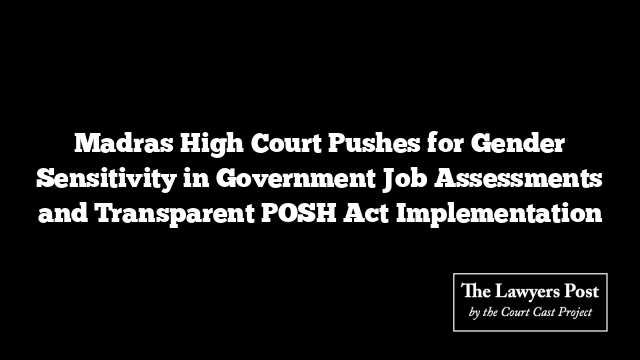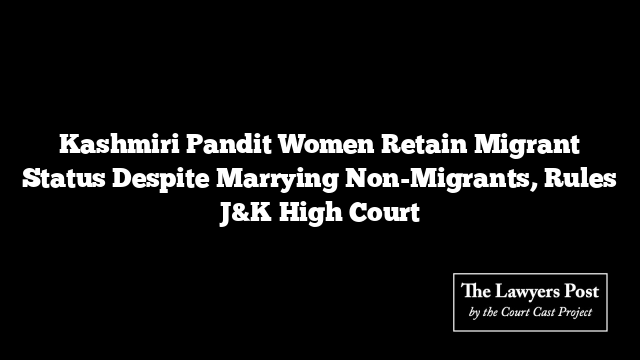The Madras High Court is taking bold steps to ensure gender sensitivity and greater transparency in the workplace. In a recent ruling, the court directed the Tamil Nadu government to finalize rules for the effective implementation of the Sexual Harassment of Women at Workplace (Prevention, Prohibition and Redressal) Act (POSH Act) within four weeks. Justice R. N. Manjula emphasized the need for these rules to address both organized and unorganized sectors, incorporating recommendations from the Tamil Nadu Women’s Commission.
In an important move, the court also urged the Central government to explore the feasibility of incorporating gender sensitivity assessments into government job exams. The proposal includes adding questions about gender sensitivity to competitive examinations and requiring candidates to pass a departmental gender sensitivity test for career progression, including promotions and increments.
Additionally, the High Court called on the state government to create a dedicated website to track and disclose details about Internal Complaints Committees (ICCs) across workplaces in Tamil Nadu. The website should include information on the committees, the number of complaints filed, actions taken, and the outcomes, all in an effort to ensure transparency and accountability.
The court also ordered the state to report on the funds allocated to publicize the POSH Act and ensure its effective implementation, as per Section 24 of the law.
These directions were issued during the hearing of a case involving two doctors from the Government Ayurvedic Medical College in Kanyakumari, who had filed petitions regarding unaddressed sexual harassment complaints. The petitioners had accused the principal of the college of shielding a staff member involved in misconduct. Although the petitioners faced suspension during the proceedings, the court intervened, leading to the revocation of the suspension.
This case shed light on the lack of rules for the POSH Act in Tamil Nadu, despite it being in force since 2013. The court also noted that victims of harassment and those who support them often hesitate to file complaints due to fears of retaliation, such as further harassment or punitive measures. In response, the court expanded its focus to urge both the state and central governments to take further action to implement the POSH Act more effectively across the state.





